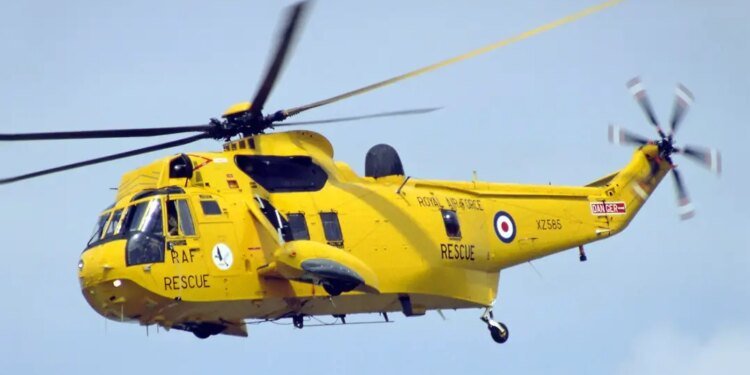Dozens of British aircrew have sued the UK Ministry of Defence (MoD) after being exposed to carcinogenic exhaust from military helicopters.
Over 40 retired and serving crew members from all three services say they have been diagnosed with cancer, including lung, testicular, and throat cancer, and non-Hodgkin’s lymphoma, The Times revealed.
Exhaust from the helicopters’ engines emit benzene, a carcinogenic chemical.
At least three former crew members have died of cancer, their lawyers alleged.
More complainants are expected to come forward in the coming weeks, The Times added.
Five former servicemen have received out of court settlements.
‘MoD Knew’
According to documents cited by the plaintiffs, the MoD was aware of the risks of Exhaust fumes in the Sea King helicopters in 1999. However, no precautionary measures were taken.
“The Ministry of Defence were aware that personnel were being exposed to high concentration levels of exhaust fumes, yet the personnel who flew the Sea King were not told. The MoD chose not to make them aware,” The Times quoted a solicitor representing the families, Louisa Donaghy, as saying.
“They didn’t provide the personal protective equipment, they didn’t modify the aircraft by moving the exhaust and they didn’t take it out of service until 2018.”
Aircraft Still Flying
Three other helicopters have been mentioned in the complaint: the Westland Wessex, the Puma, and CH-47 Chinook.
The Wessex was retired in 2003 while the other two remain operational.
“They are still knowingly poisoning aircrew, it is still going on, and they are still putting people at risk,” The Times quoted Clare Macnaughton, the widow of one of the alleged victims, as saying.
“This is another Horizon, it is another blood contamination scandal.”
Clare’s husband Kai Macnaughton flew Puma and Chinook helicopters and died of blood cancer.
Forces Network quoted an MoD spokesperson as saying: “Service personnel and veterans who believe they have suffered ill health due to service from 6 April 2005 have the existing and long-standing right to apply for no-fault compensation under the Armed Forces Compensation Scheme.”










